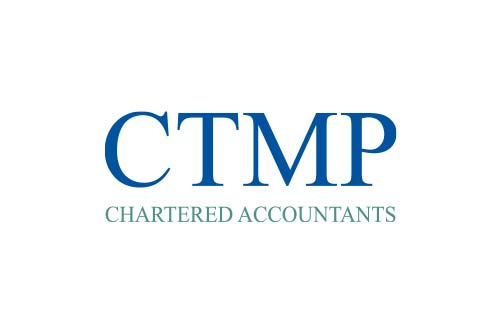
12 Aug How Property Accountants Can Help With Capital Gains Tax Planning
Selling property in the UK can often trigger a significant tax bill—one many people don’t fully anticipate. Whether you’re a landlord selling a rental property, a developer exiting a project, or a homeowner disposing of a second property, Capital Gains Tax (CGT) can eat into your profits if you’re not well-prepared.
In this blog, we break down how property accountants can provide essential guidance for Capital Gains Tax planning, helping you legally minimise liabilities and keep more of your hard-earned gains.
Need a trusted provider for Capital Gains Tax advice? Call us on 0208 776 0200 or email info@ctmp.co.uk for a free, no-obligation consultation.
When it comes to property tax, timing, structure, and strategy are everything. At CTMP Accountants, we help clients minimise Capital Gains Tax liabilities while staying fully HMRC compliant – so you can grow your wealth with confidence.
What Is Capital Gains Tax, And When Does It Apply?
Capital Gains Tax (CGT) is a tax you pay when you sell or dispose of a property that has increased in value. You’re taxed on the gain, not the total sale price. The rules vary depending on whether the property is your primary residence or an investment property.
When Is Capital Gains Tax Payable On Property?
CGT is usually due when you:
- Sell a buy-to-let or second home
- Transfer ownership of a property that isn’t your primary residence
- Sell a commercial or mixed-use property
- Sell land or part of your garden in certain circumstances
Capital Gains Tax on the sale of property applies differently for individuals, partnerships, and limited companies. This is where working with experienced property accountants becomes invaluable.
How We Help With Capital Gains Tax Planning
As specialist accountants for Capital Gains Tax, we help you approach every property sale with a clear strategy. Here’s how we can support you:
1. Strategic Timing Of Disposal
One of the easiest ways to reduce CGT is by choosing the right time to sell. We advise clients on:
- Delaying a sale to the new tax year
- Spreading disposals across multiple years
- Timing sales to offset gains against losses
Our expertise in Capital Gains Tax planning ensures that timing works in your favour, not against you.
2. Making The Most Of Allowances And Reliefs
Every individual is entitled to a CGT Annual Exempt Amount (currently £3,000 as of 2025/26). But that’s just the beginning.
We help you access additional tax reliefs, including:
- Private Residence Relief (PRR)
- Lettings Relief (if you previously lived in the property)
- Spousal Transfer (to utilise both partners’ exemptions)
- Business Asset Disposal Relief (for developers)
Using these exemptions effectively can reduce Capital Gains Tax on property significantly.
3. Property Ownership Structuring
Your ownership structure has a major impact on your CGT liability. As expert property tax advisors, we can help you assess whether to:
- Hold property in your personal name
- Transfer assets into a Family Investment Company (FIC)
- Use a limited company structure.
We also guide clients through incorporation relief, particularly useful for landlords transferring portfolios to corporate ownership.
4. Accurate Cost Base Calculation
Many taxpayers overpay CGT due to an inaccurate or incomplete cost base. We ensure all allowable costs are considered, such as:
- Solicitor and estate agent fees
- Stamp duty and legal expenses
- Improvement costs (e.g., extensions)
With expert property tax planning, you can defend your gain calculation and stay on the right side of HMRC compliance.
5. Reporting And Filing CGT Correctly
You must report most UK property disposals to HMRC within 60 days of completion and pay any tax due. Missing this deadline may result in penalties and interest.
We help with:
- Filing CGT returns accurately and on time
- Calculating payments on account
- Managing complex Capital Gains Tax on rental property sales
We ensure your return is bulletproof and defensible should HMRC raise an enquiry.
Capital Gains Tax Planning For Landlords And Developers
Landlords With Buy-To-Let Portfolios
If you own multiple properties, effective property tax compliance and disposal planning can save you thousands. We help landlords:
- Sequence sales for optimal CGT treatment
- Use losses strategically across a portfolio
- Plan exists ahead of retirement or changes in legislation
Property Developers And Investors
CGT often overlaps with Income Tax in development scenarios. We work with developers to determine whether your profit is treated as capital or income and structure accordingly.
We also provide advice on CGT planning for overseas investors selling UK property and UK residents with investments abroad, including residential property CGT implications.
Contact us
The Role Of A Property Accountant In CGT Planning
A property accountant brings much more than tax calculations to the table. At CTMP, we combine:
- 40+ years of hands-on experience in property tax planning
- Certified chartered status and audit capabilities
- Specialised knowledge of UK property tax legislation
- Ongoing education and CPD to stay current with HMRC guidelines
Whether you’re selling your first buy-to-let or planning the exit of a £10M portfolio, our property tax specialists tailor strategies to your goals and risk profile.
Conclusion
Navigating Capital Gains Tax planning is complex, but with the right guidance, it’s possible to legally reduce your tax bill and keep more of your returns. Contact CTMP Accountants, we take a proactive, personalised approach to ensure every client benefits from our expertise and foresight.
We’ve helped hundreds of clients—from landlords and developers to family investors—structure sales, utilise reliefs, and meet property tax compliance deadlines with confidence.
Ready to optimise your next property sale? Call us on 0208 776 0200, email info@ctmp.co.uk to book your consultation today.
Our chartered accountants bring over four decades of specialist experience, fully qualified chartered status, and a proven track record in Capital Gains Tax on property—including residential property CGT, portfolio disposal strategies, and tax-efficient ownership structuring.
FAQs
1. What is the Capital Gains Tax rate on property?
The current CGT rate on residential property is 18% for basic-rate taxpayers and 24% for higher-rate taxpayers (from April 2024 onwards). Commercial property rates are 10% and 20%, respectively.
2. How can I reduce my Capital Gains Tax on property?
You can reduce your CGT through strategies like using your annual exemption, claiming Private Residence Relief, structuring ownership wisely, and offsetting capital losses. A property tax advisor can help implement these effectively.
3. Do I need to report CGT on UK property?
Yes. Since 2020, CGT on UK residential property must be reported and paid within 60 days of sale completion using HMRC’s online CGT service.
4. What happens if I miss the CGT deadline?
Missing the 60-day reporting deadline can lead to HMRC penalties and interest charges. We help clients meet all filing deadlines to remain fully compliant.
5. Can you help with Capital Gains Tax if I’ve already sold the property?
Yes. We can assist with retrospective CGT calculations, loss claims, penalty mitigation, and amendments to submitted returns. The earlier we act, the better.


